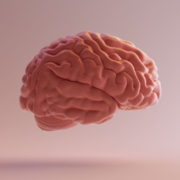Surprising Causes of Cognitive Decline & 4 Solutions to Improve Cognitive Health
Cognitive decline can be acute, chronic, subtle, or relentless. But regardless of the type, frequency, and severity, it undoubtedly affects your quality of life. Our brain might control everything about us, but we can actually control (to a great extent) the health of our brain. A healthy brain is cognitively clear and in control. And while our brains are resilient and malleable, they are also sensitive and vulnerable.
To maintain or regain cognitive health and overall wellness, it is essential that we take care of our brains and protect them from the harmful influences all around us. The good news is that once you know the causes of cognitive impairment, you can embrace the right interventions in your daily life to improve your cognitive function.
4 Surprisingly Common Causes of Cognitive Decline
While certain factors are out of control, such as the normal aging process and family history, we have a lot of control regarding our health, particularly brain health. That control comes in the form of the daily decisions we make. Since your brain is the organ that rules all, what is bad for your brain is inevitably bad for the rest of your body. So, to make the best decisions for your cognitive health and mental function, it’s helpful first to know what can cause cognitive impairment.
Nutrient-Deficient Diet
In our go-go-go society, healthy eating often gets kicked to the curb to make room for food that matches our speed of life (fast food, grab-and-go food, pick-up and delivery food). Shopping, prepping, and cooking healthy balanced meals takes time (but not that much time), and many of us have prioritized spending what downtime we do have doing other things. Until healthy eating is a well-formed habit and natural part of your life, it can feel like a time-consuming chore.
But symptoms of cognitive decline (chronic fatigue, difficulty concentrating, forgetfulness, headaches, mild confusion) can make everything feel like a time-consuming chore. A diet lacking omega-3 fatty acids, B vitamins, vitamin C, D, and E, iron, lycopene, and zinc, among other essential nutrients, but is high in trans fats, sugar, and empty calories can contribute to different types and severities of cognitive decline.
Mindless Stimulation
Television is one of America’s favorite pastimes, and with all the streaming services, it is possible to watch anything anytime. “Binge-worthy” is now one of the highest accolades a television series can hope to receive; that’s how series are being made—to inspire binging. But what happens to your mind when you binge-watch (often)—when you are mindlessly stimulated for long periods of time?
Mental atrophy, or in other words, use it or lose it, can occur when we spend too much time being mindlessly [over]stimulated. Too much time indoors and in front of the television (and our devices) can cause early signs of cognitive impairment and brain fog symptoms (when your head feels foggy, hazy, and lazy).
EMF Overload
Electromagnetic fields (EMFs) are a type of free radical that, in excess, can cause oxidative stress. Oxidative stress can lead to all sorts of adverse outcomes, including but not limited to cancer, chronic inflammation, and cognitive disorders. Unchecked oxidative stress can also cause brain fog, memory loss, headaches, chronic fatigue, and a compromised immune system. Artificial EMFs are all around us and almost all the time. Essentially, anything plugged in or Bluetooth-connected emits EMFs (meaning all your appliances, electronics, and smart devices).
Isolation
We are hardwired for social connections and connections with our natural world. A lack of connection can have cognitive (especially mental and emotional) consequences and increase the risk of cardiovascular disease, stroke, memory problems, and Alzheimer’s disease. We need each other, and we need nature. Yet, we spend an excessive amount of time indoors (90% of our day), and 36% of us regularly experience severe loneliness, according to the recent Loneliness in America report.

4 Easy Ways to Enhance Cognitive Function
While the idea of enhancing your cognitive function might sound like a complicated chore, it is actually quite simple. And once you get the hang of it, all this effort will switch from being chore-like to simply the way you live your life.
Eat a Brain-Healthy Diet
A brain-healthy diet is a whole-health healthy diet! You need high-quality, nutrient-dense whole foods that are especially rich in omega-3 fatty acids, B vitamins (1, 2, 3, 5, 6, 7, 9, and 12), vitamin C, D, and E, as well as lycopene, lutein, magnesium, iron, selenium, and iodine to support optimal brain function. When you think of brain food, think of eating the rainbow. Your diet should be diverse and colorful, which is indicative of a nutrient-dense meal plan.
Make Time for Mindful Brain Training
There is nothing wrong with binge-watching television every now and then. However, it is important to make time for mindful brain stimulation too. This can include reading, listening to thought-provoking podcasts (like Your Health. Your Story), watching documentaries, learning a new language or musical instrument, engaging in meaningful conversations, attending lectures or seminars, or enjoying brain games and puzzles.
Disconnect and Unplug
Now that you are aware of all the EMF-emitting objects around you, it is time to make a conscious effort to reduce your daily EMF exposure. This can be done by:
- Unplugging devices or appliances you are not currently using
- Limiting Bluetooth use and turning off Bluetooth mode when not in use
- Turning off your Wi-Fi before you go to bed
- Keeping your laptop off your lap and cellphone out of your pocket
- Designating a technology-free space (like your bedroom)
- Utilizing EMF-neutralizing technology like Matrix5G and Somavedic
- Spending more time in nature and near negative-ion producing sources such as the ocean, forest, waterfalls, and rivers
Make Connections
Social connections (including loved ones) are not about quantity but quality. Some of us are naturally extroverted and thrive on being around others often. While the other half of us is more introverted and doesn’t require the same frequency of socialization. But whether you are extroverted, introverted, or a mix of the two, we all need some level of socialization. Feeling like you belong, are part of something outside yourself, and have a support system is essential for your mental status and, in turn, cognitive well-being.
If you are lacking these types of connections in your life, joining a club, volunteering for a cause you are passionate about, or signing up for a class (exercise, educational, or creative) can help you meet people who at least have a common interest with you to start. An added bonus is that committing to a group that meets regularly will help you feel part of something. And who knows, this might just be the type of short-term stepping stone you need to create a more meaningfully social and cognitively strong life.
Bonus: Integrative Therapies to Improve Brain Health
Now that you are on your path to eating better, exercising your brain, reducing EMFs in your home, and building meaningful connections, it’s a good time to take a deep dive into integrative therapies that can help support your cognitive health journey. This includes, but is not limited to:
Learn more about the 100+ therapies available at the New York Center for Innovative Medicine here.
Disclaimer: The statements made in this article have not been evaluated by the Food and Drug Administration. Any products or treatments mentioned are not intended to diagnose, treat, cure, or prevent any disease. Please consult a licensed medical practitioner for medical advice.
At Innovative Medicine, we believe in transparency. We want you to know that we may participate in affiliate advertising programs pertaining to products mentioned herein.
See how we can help you restore complete health of body, mind & spirit.
Join our mailing list and receive exclusive offers + information!







Leave a Reply
Want to join the discussion?Feel free to contribute!